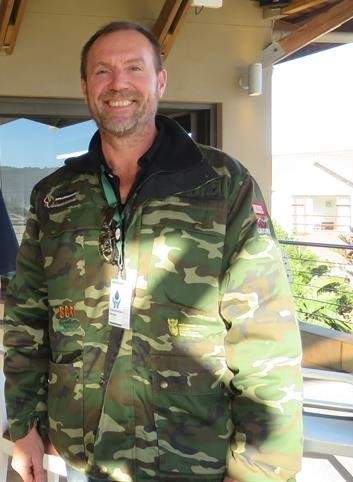GEORGE NEWS - The advent of public information platforms over the past two decades that timeously inform populations of all incoming weather events has been a game-changer in dealing with direct climate change impacts such as record rainfall figures received in 2024.
This is according to Cobus Meiring of the Garden Route Environmental Forum (Gref), who says as climate change-related events such as storm surges, severe weather, damaging wind, flood and wildfire alerts affect the Southern Cape with increased regularity, the question begs if communities still pay sufficient attention to adverse weather advisories.
Communities run the risk of information saturation, but Meiring urges that residents always take note of weather advisories and act in accordance.
"Warnings are issued for good reason and can save lives and assets as environmental threats are on the increase."
Meiring says damaging weather-related impacts have become commonplace with flooding events regularly washing away hard infrastructure, mountain passes being regularly closed and roads becoming inaccessible for extended periods.
Perhaps one of the most devastating results of changes in rainfall patterns and flooding in recent times was experienced by KZN and areas in the Western Cape, where national and regional access roads and bridges were damaged and washed away, leaving communities living in flood plains and along river banks severely affected.
Compounding matters further, the impact of a slow-growing economy is felt as municipalities across the board suffer from diminishing budgets and restraints that inhibit them in the rebuilding damaged infrastructure and impacts negatively on planned development.
 Cobus Meiring of the Garden Route Environmental Forum (Gref)
Cobus Meiring of the Garden Route Environmental Forum (Gref)
Food security across SA borders
"Ironically, countries just north of RSA, including Namibia, Botswana and Zimbabwe, are suffering from severe drought affecting food security.
"Given the sustained rain received during the past few years, the prospect of drought in the Garden Route may seem unlikely right now, but it may well return towards the end of 2025 and is something to constantly be aware of in terms of planning for the needs of increased population and development," says Meiring.
In dealing with natural disasters, the well-being of natural infrastructure such as priority water catchments, feeder streams, riparian zones and wetlands is vital.
Many of these invaluable natural systems fall within the borders of private land and are badly affected by invasive alien plant densities that have a destructive effect on not only the functionality of these systems but also cause loss of critical biodiversity.
‘We bring you the latest Garden Route, Hessequa, Karoo news’
















